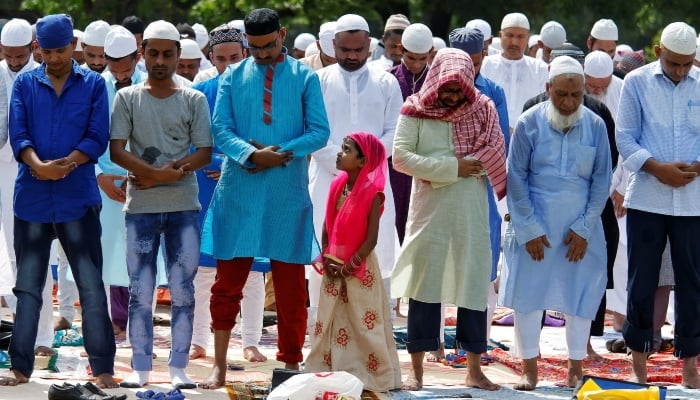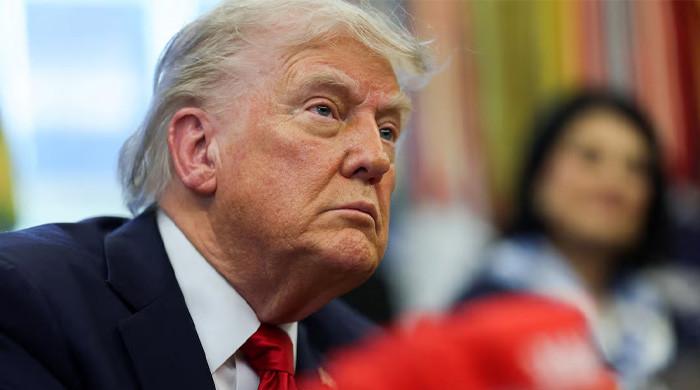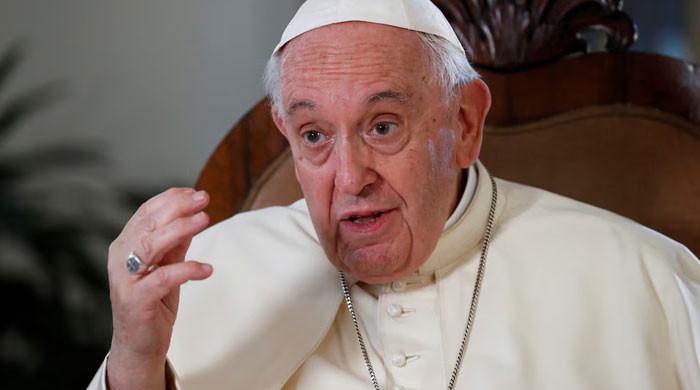India's ban on Eid prayer across roads sparks widespread backlash
"Under no circumstances shall namaz be offered on the road," says Meerut city SP
March 30, 2025

- Police threaten passport cancellation for road prayers.
- MP Iqra Hasan slams BJP’s “hatred since 2014”.
- BJP ally condemns restrictions as authoritarianism.
Authorities in the Indian state of Uttar Pradesh (UP) have imposed a ban on offering Eid ul Fitr prayer on roads, drawing widespread criticism from opposition leaders, civil society, and even members of the ruling party's coalition.
In Meerut, police warned that those who perform Eid prayer on roads would face legal consequences, including the possible cancellation of passports and driving licences.
Meerut's superintendent of police (SP) Ayush Vikram Singh said that strict legal action would be taken against violators, saying: “Instructions have been given that under no circumstances shall namaz be offered on the road.”
He further warned that individuals booked under criminal charges may not be able to renew their passports without a court-issued no-objection certificate.
Opposition parties strongly criticised the move, accusing the Bharatiya Janata Party (BJP) government of targeting the Muslim community ahead of Eid.
Samajwadi Party MP Iqra Hasan remarked, “Why is the government so troubled by a 10-minute Eid prayer? They go to the UAE and embrace everyone but impose restrictions at home. Since 2014, the government has only sown hatred.”
Broadcast media outlet ABP News also questioned the rationale behind the restriction, asking why long religious processions can block roads for weeks while a 15-minute Eid prayer is not tolerated twice a year.
Even members of Prime Minister Narendra Modi’s coalition have expressed disapproval.
Chirag Paswan, Minister for Food Processing Industries, said: “I do not agree with this politics. I believe there are bigger issues to address. We should be focusing on those, not constantly talking about Hindu and Muslim.”
Union Minister Chaudhary Jayant Singh, a BJP ally, called the police action a sign of authoritarianism, writing on X, “Policing towards Orwellian 1984!”
In Sambhal, where tensions have remained high since last November’s violence, officials initially sparked outrage by reportedly banning prayer even on rooftops. After facing backlash, district magistrate Rajendra Pensiya clarified that the restriction applied only to eight to ten dilapidated rooftops in an Archaeological Survey of India-protected zone near the Sambhal Shahi Jama Masjid.
Meanwhile, police deployed drone cameras and CCTVs to monitor compliance with the directive during Friday prayer. Assistant Superintendent of Police (ASP) Shrish Chandra said that congregational prayer would be permitted only inside mosques and designated Eidgahs.
To prevent overflow onto roads, peace committee members were instructed to redirect worshippers to other locations once a mosque reached 70–80% capacity.
Samajwadi Party MP Ziaur Rehman Barq denounced the restrictions, saying that a person’s terrace was not the property of the government. He questioned: “If a person is not allowed to pray at his residence, where will he go?”
Chandra Shekhar Aazad, opposition MP from Bijnor, criticised what he described as a competition among UP police officers “to see who gives more disgusting statements” against Muslims. “The police are not the court. They do not have any right to cancel passports. I think Muslims will have to get permission even to breathe in the coming times.”
In the neighbouring state of Haryana, Eid ul Fitr holidays were also cancelled. Assembly member Chaudhary Aftab condemned the decision, noting that the holiday was downgraded from a gazetted to a restricted status due to the end of the financial year.
The restrictions have fuelled growing concerns over religious freedom and government overreach, as well as accusations that Muslims are being unfairly targeted under the guise of law and order.











